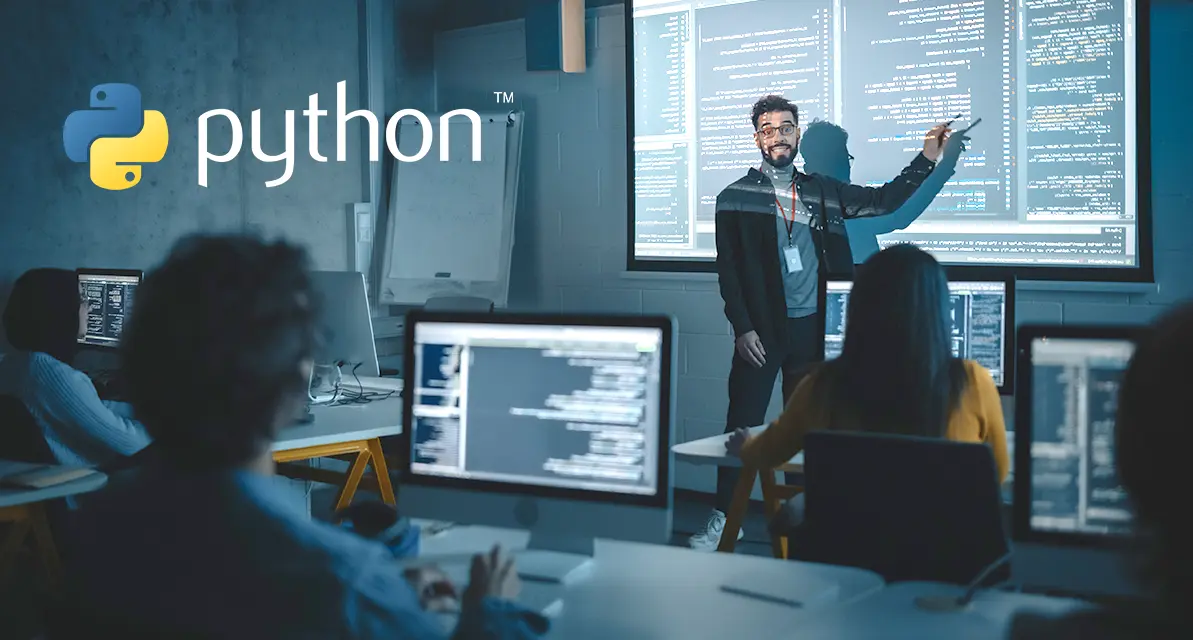More than 14 hours in length
Over 40 Learning Objects included
Access to practical hands-on labs for 12 months
Developed by a Learning Tree Subject Matter Expert
Introduction to Python On-Demand Training
Course 7905
- Language: English
- Level: Foundation

Interested in learning how to write code and develop apps in Python? Do you find it difficult to be away from work for 3 consecutive days?
In this Introduction to Python On-Demand course, you will learn how to write Python code on your own schedule. This is the same content as our instructor-led version, just brought to you in an On-Demand format.
You will have the ability to access this course at any time for one calendar year. This includes all the learning content, course labs and demonstration videos.
Introduction to Python Training Course Benefits
- Learn how to rapidly develop feature-rich applications using Python's built-in statements, functions, and collection types
- Structure code with classes, modules, and packages that leverage object-oriented features
- Create multiple data accessors to manage various data storage formats
- Access additional features with library modules and packages
- Access the labs and lab instructions as often as you like over the term of your course
Introduction to Python On-Demand Course Outline
- Enter statements into the Python Console
- Identify and access documentation
- Define an object and a type
- Assign objects to variables
- Employ arithmetic operators
- Use string operations and methods
- Index and slice strings
- Make decisions using the if statement
- Learn about lists, tuples, dictionaries and sets
- Create and modify list operators and methods
- Index and slice lists and tuples
- Create and process dictionaries using functions and methods
- Perform set arithmetic
- Test for membership in a collection
- Iterate using for and while loops
- Apply list comprehensions
- Create functions
- Call functions using positional and keyword argument passing
- Handle unlimited numbers of keyword or positional arguments
- Return values from functions
- Know the 4 levels of scope
- Create and call lambda functions
- Define classes
- Add attributes using the constructor method
- Add additional methods to objects
- Access class attributes
- Leverage inheritance
- Import additional modules
- Access attributes from another namespace
- Inspect the current namespace
- Test the __name__ attributes
- Access modules from the standard library
- Navigate package contents
- Handle exceptions raised by Python
- Raise exceptions
- Open, close, read and write to files
- Iterate through a file
- Leverage the context manager to open and close files
- Define the 3 standard streams
- Describe a relational database
- Describe the steps to access a database from a Python program
- Create a database connection
- Interact with the database through a cursor
- Execute SQL statements using a cursor
Need Help Finding The Right Training Solution?
Our training advisors are here for you.
Introduction to Python On-Demand Course FAQs
Attendees should have familiarity with concepts, such as variables, loops, and branches, with some experience using a text editor to edit program code.
Python developers write the code necessary to develop applications using Python's built-in statements, functions, and collection types. Python is also a very popular language for data analytics.
There are many pathways to becoming a Python programmer, but the skills required typically include a firm understanding of object-oriented programming and experience in developing applications with Python.
Yes, this course, combined with some personal reading on recursion and Python’s exception hierarchy, will help you prepare for the PCEP exam.
The Certified Entry-Level Python Programmer (PCEP) certification is a certification program designed to demonstrate an individual's competency in basic Python programming concepts. The certification is intended for entry-level programmers who have a fundamental understanding of Python and want to document their knowledge and skills in the language.
Yes! By obtaining the PCEP certification, individuals can demonstrate their knowledge of Python and ability to write clean, efficient, and effective code. This can help them stand out from other candidates when applying for entry-level programming jobs and can also help them advance their careers by showing employers that they have an understanding of the Python programming language basics.
This course prepares you quite well (roughly 90%) for the PCEP exam but not sufficiently for the PCAP. Passing the PCAP exam requires Python fluency in many advanced techniques and concepts, some achievable only through personal research, practice, and coding experience.
Yes. The on-demand content was developed by the same author as the Instructor-led course and has the same course objectives, hands-on exercises and lab demonstrations.
Yes. The same hands-on exercise labs and instructions used in the instructor-led course are available throughout the 1 calendar year term of the on-demand course.
Once payment is received, you will receive an email from Learning Tree with all the links and information you need to get started. You will access this course through the My Learning Tree portal.




